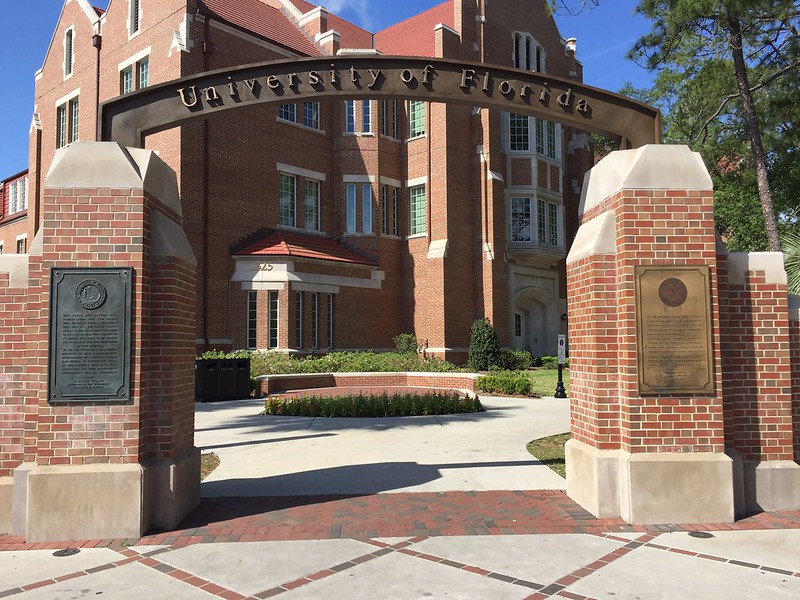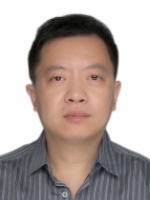
Nearly two years after a doctoral student hanged himself in a building on the campus of the University of Florida, in Gainesville, his supervisor has been placed on paid leave, a move that follows a report released last month that found evidence of misconduct at three different computing conferences.
Huixiang Chen was found dead in June 2019, while working in the research group of Tao Li, a computing engineer. A few months before his suicide, Chen wrote a paper for a prestigious, annual conference in computing, the International Symposium on Computer Architecture, or ISCA, which is one of the three mentioned in the report.
Chen’s paper was accepted, but his death, before the conference began, sparked allegations that the peer-review process had been unfairly compromised and that Li had coerced his student to publish faulty results. The University of Florida launched an investigation into the circumstances of Chen’s death shortly after his suicide, but those findings have not been publicly released.
Li did not respond to requests for comment. The report on the conferences, released February 8 by a “joint investigative committee” from two organizations that sponsored the ISCA meeting, reached four main conclusions, starting with:
1. There was clear and convincing evidence that several individuals implicated in the investigation had intentionally breached the peer review process for ISCA’19 by repeatedly sharing reviewers’ names and reviewer scores connected with submissions. The Board further determined that these individuals colluded in supporting a submission by asking other individuals to draft messages to be posted in the conference’s review system.
2. There was clear and convincing evidence of breaches of reviewer confidentiality for HPCA’19, and ASPLOS’17 discovered incidentally to this investigation.
ASPLOS is the International Conference on Architectural Support for Programming Languages and Operating Systems, organized by The Association for Computing Machinery, or ACM. HPCA is the International Symposium on High-Performance Computer Architecture, organized by the IEEE Computer Society. The report continues:
3. There was clear and convincing evidence that an ISCA’19 author had coerced a co-author to proceed with a submission despite that co-author’s repeatedly expressed concerns about the correctness of the results reported in the work.
4. In several instances, there were signs of other wrongdoing exposed by the investigation. Furthermore, the JIC [Joint Investigative Committee] suspected that some individuals were not fully candid about their actions when questioned. However, without additional corroboration, the JIC concluded there was insufficient evidence — at that time — to tie that evidence to specific individuals to the level of clear and convincing proof. (If additional evidence of connected misbehavior is discovered in the future, ACM may reassess these determinations.)
The report does not name those responsible for breaching the peer review process, or for coercing their co-author to publish faulty findings. That’s due to a “longstanding ACM policy to keep names/institutions of those disciplined confidential,” according to a tweet from Jonathan Aldrich, a computer scientist at Carnegie Mellon University.
On June 29th, 2019, an anonymous user called “Huixiang Voice” posted on Medium, claiming to have text messages and other documents related to Chen’s death. That same month, IEEE and the ACM “were contacted by members of the Computer Architecture community with a request to investigate allegations of potential academic and publishing-related misconduct related to the ISCA’19 Conference,” according to the new report. The committee’s first investigation, the results of which were made public in December 2019, “found no tangible evidence of wrongdoing for the paper in question,” an apparent reference to Chen’s conference paper.
The next month, in January 2020, “Huixiang Voice” published a second article, with new allegations that pushed the committee to reopen their investigation, culminating in the February 8 report.
Li was placed on paid leave on February 15 of this year, according to public radio station WUFT, which obtained a letter in Li’s personnel file through Florida’s public records law. The letter says that Li had been “placed on administrative leave with pay effective immediately until further notice, pending investigation.” The letter also says that Li is barred from being on campus and from contacting faculty, staff or students.
The perpetrators uncovered in the February 8 report received “level IV and V penalties” from the ACM. These penalties ban violators from submitting articles to any ACM venue for two and five years, respectively, and ask the violator to write a letter of apology, admit wrongdoing, and retract their published items from the ACM Digital Library, according to the group’s policy on plagiarism, misrepresentation and falsification. One perpetrator received a 15 year ban from publishing with the ACM, according to the report.
The newly released report also confirmed that reviewer confidentiality at two other conferences — HPCA’19, and ASPLOS’17 — had been compromised. ASPLOS recently announced changes to its peer review process for the 2021 conference. Now, reviewers will not be able to bid for the papers that they want to review, and the online discussions for submitted studies will be entirely blind.
In an email to Retraction Watch, Christos Kozyrakis, the ASPLOS ‘21 program committee co-chair, explained that these changes were made before the report from IEEE and the ACM was released:
At the time we set the reviewing process for ASPLOS’21, the ACM/IEEE report was not public and most likely was not even completed. We made changes to the process compared to previous years partially motivated by the issue of collusion. There were other motivations such as improving review quality, managing reviewer load, etc. Towards the end of our review process (mid November), a member of our research community made a post implying that there is an organized fraud effort around ASPLOS (link). Hence, we felt obliged to address the issue by publicizing the measures we had taken from the very beginning in order to make fraud significant [sic] harder and less effective (link). Our Program Committee did not have the means or the authority to investigate if there was actually an ongoing fraud effort. Nevertheless, we hope our measures helped protect the integrity of the conference while ACM/IEEE further investigate this issue. By the time ACM/IEEE published their recent report, our conference review process had concluded.
Retraction Watch sent an email to Scott Delman, ACM’s director of publications, asking about changes to the peer review process for future conferences, and seeking to clarify whether the investigation’s outcome was related to Huixiang Chen’s death. In response, Delman sent a PDF copy of the public report and said:
I am unable to share any additional information about the [joint investigative committee] Investigation beyond what has already been publicly announced.
Huixiang Chen’s ISCA conference paper was retracted on January 26th. The notice reads:
This Work has been Retracted by ACM because one or more of the authors of this Work were proven to have known or believed that the Work contained incorrect and/or falsified results prior to publication of the Work and one or more of the authors of this Work violated the anonymity and independence of the review process for their paper “3D-based video recognition acceleration by leveraging temporal locality” to the Proceedings of the 46th International Symposium on Computer Architecture (ISCA ’19). Association for Computing Machinery, New York, NY, USA, 79-90.
Meanwhile, computer scientists vented their frustrations on Twitter that the names of perpetrators identified by ACM and IEEE have not been made public.
The National Suicide Prevention Lifeline is a hotline for individuals in crisis or for those looking to help someone else. To speak with a certified listener, call 1-800-273-8255.
Like Retraction Watch? You can make a tax-deductible contribution to support our work, follow us on Twitter, like us on Facebook, add us to your RSS reader, or subscribe to our daily digest. If you find a retraction that’s not in our database, you can let us know here. For comments or feedback, email us at [email protected].

In case anyone doesn’t read through the Huixiang Voice part of this story, what I’m understanding as the sequence of events here is shocking if it is true:
1) U Florida doesn’t investigate suicide note.
2) Huixiang Voice publishes suicide note and requests investigation
3) Tao Li figures out the real name of Huixiang Voice’s source and sends them a threatening email
4) Following this intimidation, SIGARCH & TCCA, the cosponsors of the conference, are permitted to investigate themselves with no independent oversight, and proclaim that there is “no tangible evidence of wrongdoing”!!
5) Huixiang Voice publicizes the contents of Huixiang’s hard drive — something a real investigation would have done itself
6) Spurred by this “verifiable evidence” ACM forms an independent investigative committee, comprised of members of “ACM’s Ethics and Plagiarism Committee, ACM’s Committee on Professional Ethics” etc. This actual investigation finds “clear and convincing evidence” of wrongdoing
Am I missing something here?
this is too sad but not surprising whatsoever. The level of abuse and wrongdoing in science and academia is appalling and must be confronted at some point
I agree with azrael. This is just the tip of the iceberg of what goes on daily in academia.
The sad UF case also reminds of a similar story at Wisconsin: https://madison.com/wsj/news/local/education/university/uw-madison-opens-2nd-investigation-into-professor-at-center-of-toxic-engineering-lab/article_522a3578-fbe4-5c3f-9ccb-9fb6dbf440ad.html
If the UF story unfolds similarly, the UF faculty might be back at it after 1-2 year paid vacation (err, ‘leave’).